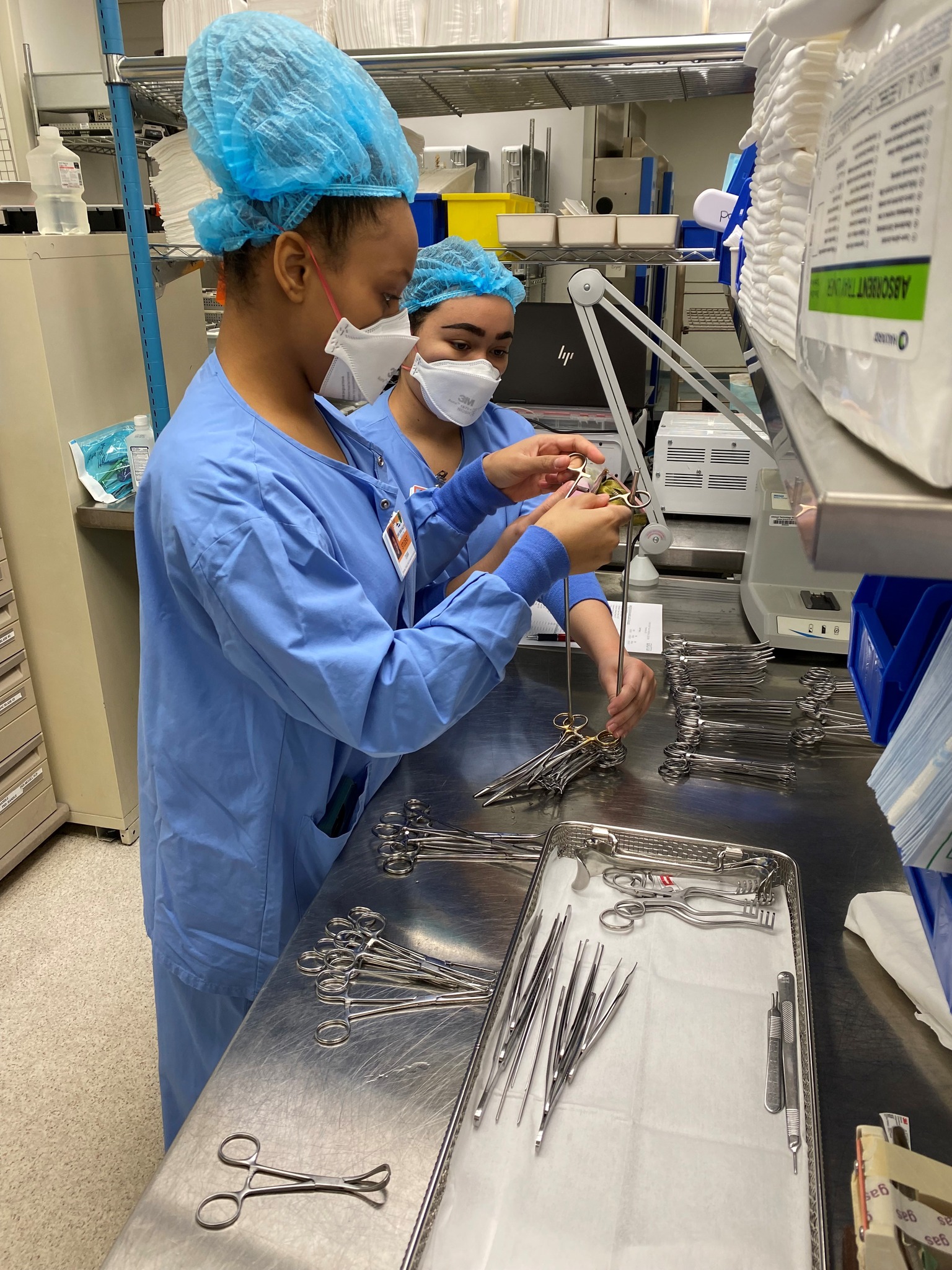
Fayetteville Technical Community College (FTCC) is starting a new cardiovascular technology program to establish a pipeline that could cover increased demand for technicians in the cardiovascular health space.
The program would have its initial two cohorts starting in the fall of 2026, and would span the course of two years — in the way a traditional associate degree does. FTCC officials say the program is particularly valuable for students seeking a steady career with good earning potential in a field in demand.
Cardiovascular technology is a health career that prepares individuals to perform procedures leading to diagnosis and treatment of cardiovascular disease.
“Cape Fear Valley Health reached out to us about starting a program, and we had several meetings, and we collaborated,” said Michelle Walden, FTCC’s dean of Allied Health. “There’s such a need for anything having to do with cardiovascular health, and everybody’s numbers have gone up. FirstHealth, and [University of North Carolina] Southeastern have been part of the conversations.”
The program, Walden said, is yet another example of FTCC’s efforts to address workforce needs for employers all over North Carolina.
“Typically, providers end up with some radiographers doing this type of work. With this program, we can take people with no healthcare experience, they can get the two year associate degree, and go into it,” Walden noted.
Two tracks are expected for the program; an invasive and a non-invasive track. Students who decide to take on the coursework in the invasive track will qualify to become Registered Cardiovascular Invasive Specialists (RCIS) via a certification process approved by Cardia Credentialing International (CCI), a nonprofit corporation established to administer credentialing examinations as an independent certification agency.
Walden, a radiologic technologist herself, also shared that graduates will be prepared to work in cardiac catheterization and/or interventional radiography.
“A radiographer has the background of the radiation protection, the physics of it all. And when you’re working with ionizing radiation on the invasive track, it’s important, because people don’t really think about radiation because you can’t see it, but it can cause harm. For safety, you need to understand that.”
For radiographers already certified by the American Registry of Radiologic Technologists (ARRT) who complete the invasive track, they will be eligible for the ARRT Vascular Interventional (VI) or Cardiac Interventional (CI) certifications — both advanced specializations for registered technologists.
The CI certification focuses on image-guided procedures for the heart and coronary arteries, such as angioplasty and stenting, performed in a cardiac catheterization lab. The VI certification is for image-guided procedures on blood vessels throughout the body (except the heart), such as those in the brain, abdomen and extremities.
Students in the non-invasive track, specializing in cardiac sonography, will be eligible to become registered diagnostic cardiac sonographers through the American Registry of Medical Sonography. They can also become registered cardiac sonographers through CCI. Graduates will be prepared to work in echocardiography in hospitals and cardiology offices.
“We also plan to develop pathways for students who hold an associate degree and credentials in related health professions such as radiography, medical sonography, nursing, emergency medical science, respiratory therapy or surgical technology,” Walden added.
To implement these new programs next fall, the university is working on overhauling and reusing its facilities. That starts with renovations to the existing surgical services at FTCC. The cardiovascular technology program cohorts will share the facility with those from the surgical technology and central sterile processing programs.
“There’s three main rooms and three smaller rooms. We’re going to be knocking down all the walls and making it one big open space,” Walden said. “We only have two mini surgical rooms, and now we are going to be able to increase that to three. We are also going to add a cardiovascular simulator that we purchased.”
That room will also feature a classroom space, Walden added. “If they need to show a concept, they can get up, walk right over to the equipment, show them what they need, come back and not have
to do that separately,” Walden said.
FTCC’s Associate Vice President for Instructional Programs Susan Evans said graduates of the program will have a chance to quickly integrate into the healthcare field.
“Especially if it’s in the hospital setting or some larger setting,” Evans said.
According to Evans, the program can also open opportunities for career advancement and pursuit of other educational accolades.
“We hear stories all the time: ‘I started with my associate’s degree in nursing, and then I went ahead and got my bachelor of science in nursing,’” Evans said. “Anytime that you get a student into a medical profession and then it really clicks for them, any pathway is a possibility.”
The program, Evans said, is even more important as the area’s population continues to age. “I don’t know if people are necessarily less healthy,” she said. “But we have an aging population being less and less replaced with younger people, and so there’s just more older people who need care in this region.”
Learn more about FTCC’s healthcare programs at: www.faytechcc.edu/academics/healthcare-programs.

Kristen Botts co-founded the program with her husband, Nathan Botts, who is a Veteran himself. Photos provided by Kristen Botts.An organization helping Veterans live a full life after their service in the U.S. Military wants to connect Veterans and d

Patrick NoblesHuntington Bancshares Incorporated announced on Feb. 2 that it has closed its merger with Cadence Bank, a regional bank headquartered in Houston, Texas and Tupelo, Miss. This strategic partnership accelerates Huntington’s growth in

There is extensive dialogue surrounding Fayetteville as a travel destination or city aimed at recruiting new businesses and new residents. As someone who moved here from out of state, I thought it could be fun to share my personal experience as